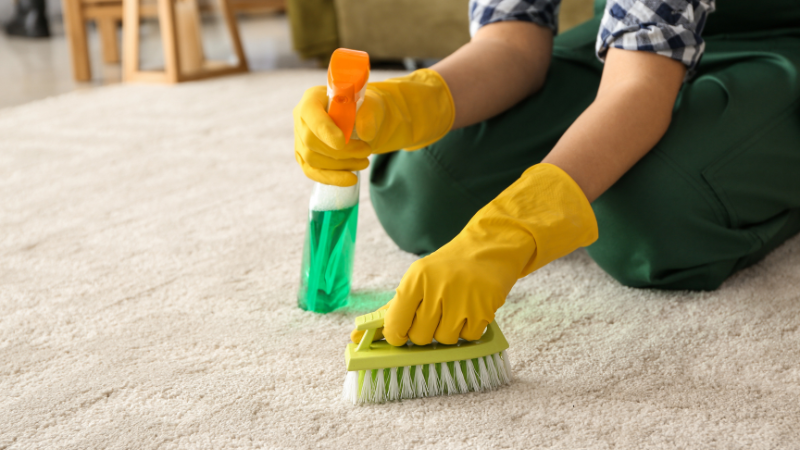Are you planning to store a carpet or rug for an extended period? Its crucial to know how to store carpet to avoid mold. Mold not only damages your carpet but can also pose health risks. Let’s explore expert ways to protect your carpet.

Understanding the Dangers of Mold
Mold thrives in damp environments. If carpets are stored incorrectly, they can become a breeding ground for mold. To effectively prevent this, understanding these conditions is key.
Choosing the Right Storage Location
The first step in preventing mold in stored carpets is choosing a suitable location. Make sure the storage area is dry and has good air circulation.
Basements: Yes or No?
While basements are convenient, they are often damp. If choosing a basement, ensure its dry and not prone to flooding.
Preparing Your Carpet for Storage
Clean your carpet thoroughly before storage. This means removing dust, dirt, and any existing moisture.
Dry Cleaning as a Must
Look into options such as dry carpet cleaning to ensure your carpet is spotless and dry before storage.
Packing Your Carpet Correctly
After cleaning, roll the carpet with the pile facing inwards. This helps in maintaining the carpets quality.
Using Breathable Materials
Wrap the rolled carpet with breathable materials like cotton sheets, avoiding plastic which traps moisture.
Controlling Storage Conditions
Consistent temperature and humidity levels are essential. Use a dehumidifier to control humidity.
Monitoring Conditions
Regularly check the storage conditions to adjust humidity and temperature as needed.
Regular Inspections
It’s important to periodically inspect your stored carpet for any signs of mold or mildew.
Identifying Early Signs of Mold
Look for gray or green spots and a musty odor, indicative of mold growth.
Remedial Actions for Detected Mold
If you spot mold, immediate action is necessary. Professional cleaning might be required to eradicate mold entirely.
Professional Help
Consider hiring professionals with expertise in removing mold from carpets.
Alternative Approaches to Preventing Mold
Consider alternative flooring options such as tiles if your area is prone to mold.
Evaluating Flooring Options
Read about alternative flooring options that reduce mold risk.
Safe Practices for Long-Term Storage
Even with preventive measures, regular maintenance of storage areas is essential to ensure ongoing dryness.
Maintain Dryness
Ensure all storage areas are free from moisture, and act immediately if leaks are discovered.
Conclusion
Knowing how to store carpet to avoid mold is indispensable for keeping your property and health safe. Through cleaning, proper storage techniques, and regular inspections, you can effectively protect your valuable carpets.

FAQ
What humidity level is safe for carpet storage?
Maintain humidity around 40-50% to prevent mold.
Can I store carpets in airtight containers?
Avoid airtight containers as they trap moisture, promoting mold.
How often should carpets in storage be checked?
Inspect stored carpets every few months to ensure no signs of mold are present.
For further insights on preventing carpet mold, feel free to explore expert advice available online.
This article contains affiliate links. We may earn a commission at no extra cost to you.


